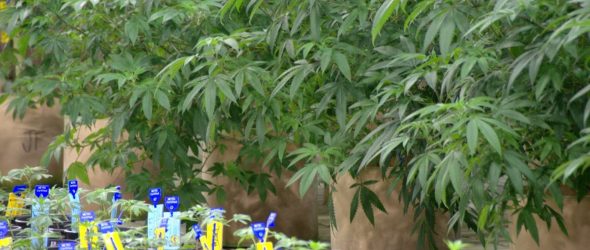Colorado marijuana regulators are closer to creating new business licenses for eligible entrepreneurs who lack funding, with the micro-license applications expected to become available early next year.
Securing a marijuana license has proven to be a costly, lengthy venture for a startup business in Colorado, with most licensing opportunities in Denver and other metro communities drying up because of market saturation and local license moratoriums.
The Colorado Legislature passed several laws over the last two years to address the lagging social equity and diversity in the state’s legal pot trade, including measures loosening marijuana employment restrictions for former drug felons and giving Governor Jared Polis the power to pardon former low-level pot possession charges. The micro-license was one of Colorado lawmakers’ early social equity efforts, but it has taken a while to develop.
Created through a 2019 law that overhauled the state’s medical and recreational marijuana regulations, the licenses are intended to raise social equity within commercial pot by making business permits more accessible to those harmed by the War on Drugs. However, a year after the law took effect, applications still aren’t being accepted as the state Marijuana Enforcement Division continues holding rulemaking hearings, with the most recent meeting providing a window into the MED’s progress.
The new micro-license applications are now expected to be ready by January 1, 2021, according to the MED, and could be used for marijuana dispensaries, growing operations and infused product manufacturing. To be eligible, applicants would have to fit one of several qualifications connected to communities impacted by drug prohibition, including annual income and proof of direct harm related to the War on Drugs.
According to the MED’s proposed rules, the micro-licenses would be connected to and housed within the facilities of established pot companies that agree to play host, and would come with discounted licensing fees. The licenses would stay reserved for applicants who meet one of the following qualifications:
- The applicant has resided for at least fifteen years between the years 1980 and 2010 in a census tract designated by the [state] Office of Economic Development and international trade as an opportunity zone or a census tract designated as a Disproportionate Impacted Area.
- The applicant or the applicant’s parent, legal guardian, sibling, spouse, child or minor in their guardianship was arrested for a marijuana offense, convicted of a marijuana offense, or was subject to civil asset forfeiture related to a marijuana investigation.
- The applicant’s household income in the year prior to application did not exceed 50 percent of the state median income as measured by the number of people who reside in the applicant’s household.
A Disproportionate Impacted Area is a Colorado region identified as such by U.S. Census Bureau measurements of the percentage of residents who are unemployed, receive public assistance, live below the federal poverty level or failed to graduate high school. According to MED deputy director Dominique Mendiola, the MED is in the process of creating a webpage so that applicants can enter their home addresses and see if they live in a Disproportionate Impacted Area.
“A lot of work has gone into this,” Mendiola said during a recent MED rulemaking meeting. “Our goal is to have the ability to identify Disproportionate Impacted Areas, set up in a way that is operable for applicants to determine whether they fall into that category, or whether they need to look into some of the other eligibility factors.”
The MED is still considering changes as it moves through more rulemaking discussions in October.


